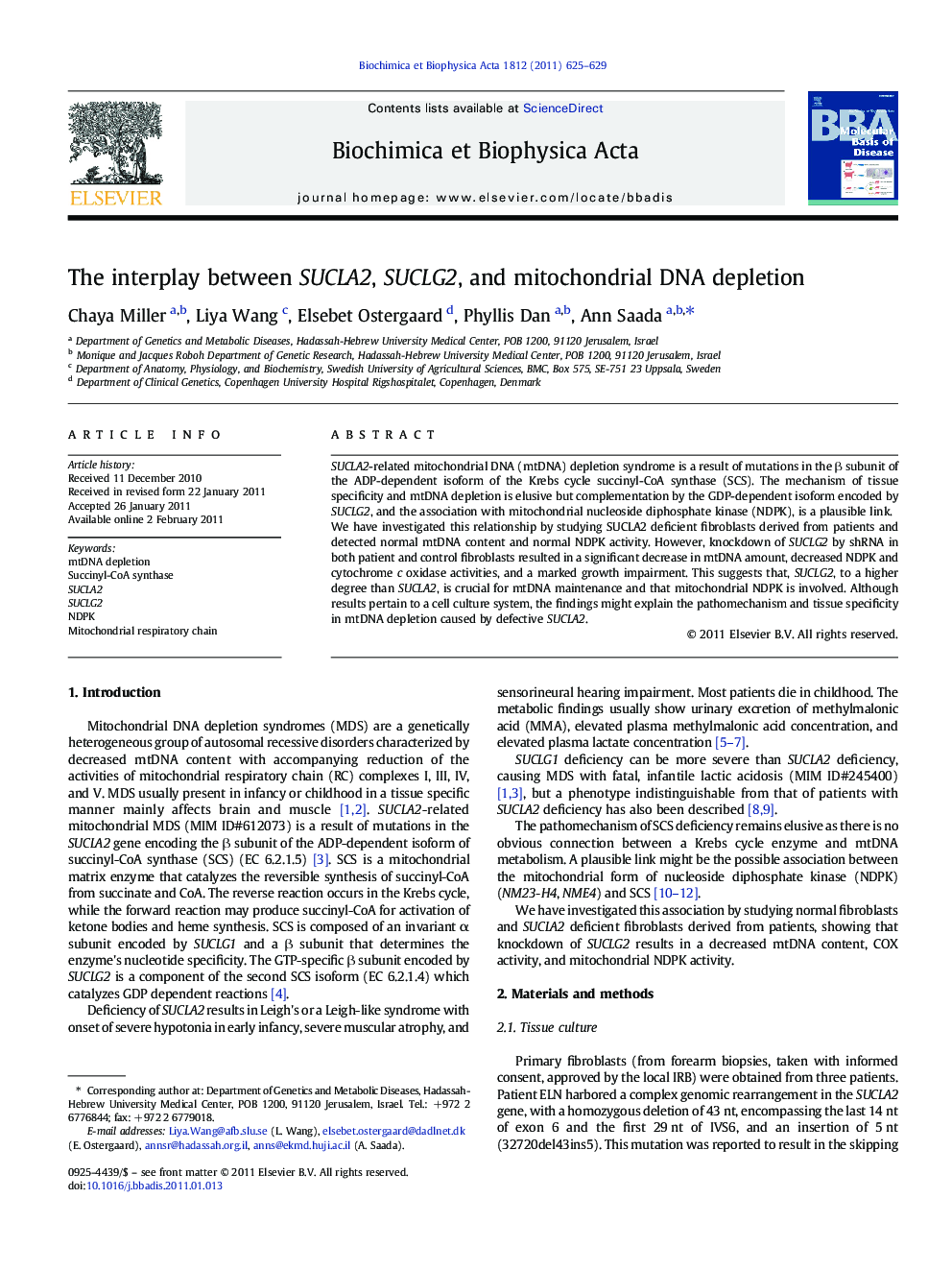| Article ID | Journal | Published Year | Pages | File Type |
|---|---|---|---|---|
| 1905138 | Biochimica et Biophysica Acta (BBA) - Molecular Basis of Disease | 2011 | 5 Pages |
SUCLA2-related mitochondrial DNA (mtDNA) depletion syndrome is a result of mutations in the β subunit of the ADP-dependent isoform of the Krebs cycle succinyl-CoA synthase (SCS). The mechanism of tissue specificity and mtDNA depletion is elusive but complementation by the GDP-dependent isoform encoded by SUCLG2, and the association with mitochondrial nucleoside diphosphate kinase (NDPK), is a plausible link.We have investigated this relationship by studying SUCLA2 deficient fibroblasts derived from patients and detected normal mtDNA content and normal NDPK activity. However, knockdown of SUCLG2 by shRNA in both patient and control fibroblasts resulted in a significant decrease in mtDNA amount, decreased NDPK and cytochrome c oxidase activities, and a marked growth impairment. This suggests that, SUCLG2, to a higher degree than SUCLA2, is crucial for mtDNA maintenance and that mitochondrial NDPK is involved. Although results pertain to a cell culture system, the findings might explain the pathomechanism and tissue specificity in mtDNA depletion caused by defective SUCLA2.
Research Highlights►SUCLA2 deficient patient cells have normal mtDNA content and mitochondrial NDPK activity. ►Knockdown of SUCLG2 in both normal and SUCLA2 deficient cells causes decreased mtDNA content, decreased cytochrome c oxidase and mitochondrial NDPK activities, and impaired growth. ►The findings explain the pathomechanism and tissue specificity in SUCLA2-related mtDNA depletion syndrome.
